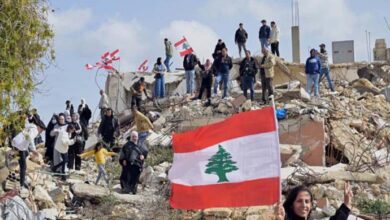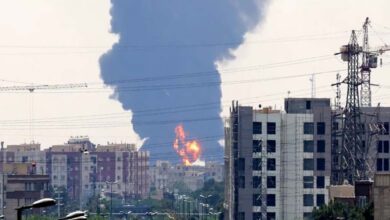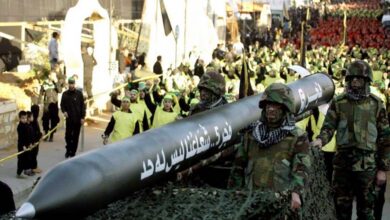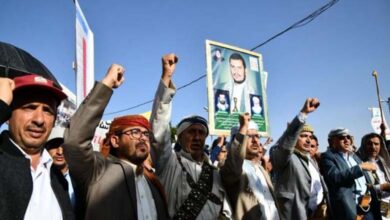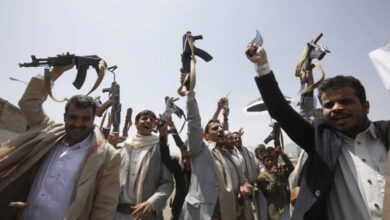Distressed Peoples and Russian Roulette

The Lebanese are succumbing to death by installment, and they are waiting for the hour of relief that brings the file of the Iranian-American negotiations to a happy conclusion.
They cite the information cord that has been circulating in the media about progress in Vienna, hoping to end the inertia and inertia that prevent people’s nights from returning to the Cedar Land with a miraculous government, elections that could bring about change, a new president turning the page on the “Strong Era”.
As in Lebanon, so is the Iranian axis, where political custodianship of sovereignty generates livelihood crises that breed new realities of poverty, displacement, detention and death with the aim of surrendering to the forces of the fait accompli, independent of the institutions of those States, which are constitutional, military, legal and human rights to the minimum.
It is as if the peoples of these countries can only wait negatively for the entitlements of the regional controllers and the major powers, to remain hostage to a deadly game that requires a long breath. It could be impossible for a father to find bread and milk for his children in failed countries that cannot provide electricity, water, medicine, school and hospital to its citizens.
And for reasons that have nothing to do with except the agenda of the struggle of the big ones, their negotiations, the banks of their goals, and the ability of each of them to blackmail those who negotiate to keep their gains.
Let us remember that teachers have always chosen the most naughty student as the norm, to protect himself or herself and other students.
Fear is justified by the generalization of the principle to go beyond educational strategies to political strategies among the major and regional powers that are smaller and larger than us, but here the riotous is much more than fatwa and bullying and bullying the weakest.
Here the world watches the blood equations, their results, and the disasters that come from them, which are transferred to the squares that the Fatwa/Bully needs. He invades them, destroys their foundations, and displays his power to convince the strongest to adopt him as a Corporal.
Thus, the peoples of the countries afflicted by the agenda of the Iranian axis are afraid that the United States will adopt the policy of assigning the head of this troublemaker as a chairman, while its bet for salvation is to force the naughty to trim the arms that implement the agendas.
What Iran wants from negotiations – the lifting of sanctions in exchange for concessions on Iran’s nuclear program, the nuclear actions required of Iran and the new advanced centrifuges.
While it is being heralded that “an agreement is in the cards, and it will not take months,” there are no signs of pledges to control Iran’s arms, whose reach is being stretched, as the Bank of Targets requires it to create the required regional equation, whether with Hezbollah, the PMF, Hamas, or the Houthis.
What is disturbing about these negotiations is that Iran holds onto the cards of the peoples that it controls in exchange for its nuclear concessions, convincing the “Great Satan” to officially commit the region to some reassurance concerning what is greater than the livelihood of the countries that tamper with their security, security, and stability.
Here, the implications of the U.S. “carrot and stick” policy toward Iran and the international community behind it are unclear.
It is not possible to predict who will pay the bills, as happened after Iraq’s invasion of Kuwait and the position of the late Syrian President Hafez al-Assad, who was arrested in Lebanon after the Taif Agreement.
What will it take for the United States to formally win the binding, and to become dependent on the states that boast about controlling them?
Of course, with the particularities of each of these countries and the relationship of the United States, Russia, Turkey, Israel or even China with them, what is true in Iraq may not be true in Syria, and what is permissible and available in Lebanon, may not be the case in Gaza. Yemen’s war agenda may be independent, according to the data exchange.
“But in any case, Iran is comfortable offering the cards it controls for negotiation, because the strength of those papers is tied to its pledge to stop hurting the people it is betting on its arms.”
She sells this handcuff to the US at the Vienna table. The source of her relief is that the battles she is waging are not in her own homes, but in Dar al-Arab, and with live Arab meat, so she can bite the wounds of the sanctions to get the desired price.
In waiting, it is not important what price young, fearful of being bound, pay. They are betting on a Russian roulette game that might topple their heads, or save them if the Vienna negotiations stipulate their liberation from the arms, so that there will be nights of stability and a dignified life to which we long for.


